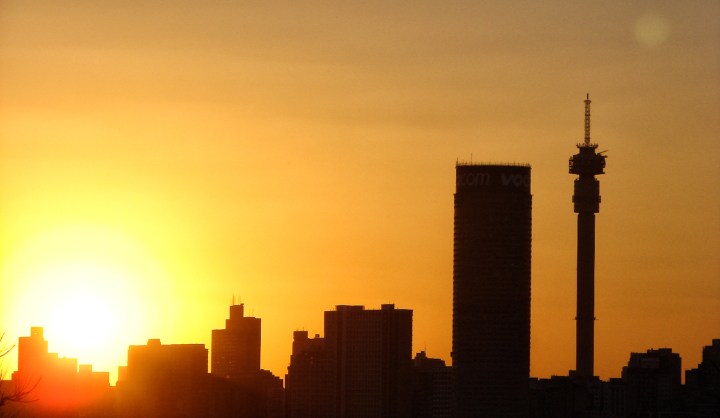Maverick Life, South Africa
Op-Ed: Transgender sex workers – when the system denies them equality and power

There is a dangerous assumption that the South African health department’s sex worker programmes are able to assist all sex workers. However, the reality is that while all sex workers experience tough challenges such as harassment, police brutality, and abuse from clients in their line of work, transgender sex workers face even greater challenges including discrimination from society as well as from fellow sex workers. By THUTHUKILE MBATHA.
Can you imagine what being a sex worker in South Africa is like? You aren’t protected by the law, people do what they please with your body. But even more, can you imagine the complexities of being a transgender sex worker? Your identity is not recognised, you are prodded and abused by your clients, and in the eyes of the police you are less of a being.
For years, we have waited with bated breath for the National Strategic Plan on HIV, STIs and TB (NSP) to address issues of the HIV epidemic among the key population, specifically sex workers. For years we’ve spoken of the 90/90/90 targets by 2020 as set by UNAIDS. But every year we fall short, the epidemic continues, and lives are lost.
The NSP states that HIV prevalence among the approximately 150,000 female sex workers in South Africa ranges from 48% to 72%, compared to 14.4% among adult women in the general population. It makes no reference to transgender people, despite the fact that they are quoted as a key population group in the same document.
In addition, despite the fact that decriminalisation of sex work was contained in two previous versions of the NSP, there is no mention of it in the 2017 version. This despite compelling evidence that shows the benefits of decriminalising sex work which includes confronting police violence and abuse, promoting human dignity, improving working conditions and providing better access to quality healthcare.
On top of that, it is assumed that when we speak of sex workers and the challenges they face, we are merely referring to cisgender people (i.e. someone who identifies with the gender they were assigned at birth), heterosexual women and men who engage in sex work. It is clear that our progression has not moved beyond the boundaries of cisgender people. Even in 2017.
There is a dangerous assumption that the South African health department’s sex worker programmes are able to assist all sex workers. However, the reality is that while all sex workers experience tough challenges such as harassment, police brutality, abuse from clients in their line of work, transgender sex workers face even greater challenges including discrimination from society as well as fellow sex workers.
Despite being in an age where information is easily available to most, there are very few organisations that work with trans sex workers. There are a few such as GenderDynamix and Sistazhood, but they are small. These organisations need more financial support so they can grow and continue to serve this vulnerable population effectively.
Trans sex workers are often further victimised by the system. In clinics, nurses are reported to have turned transgender patients away and have refused to administer hormone and other treatments to assist in medical transition. Under the lofty goal of reaching all key and vulnerable populations with customised and targeted interventions, the NSP undertakes to provide capacity-building programmes designed to improve the skills of health providers to address the needs of key and vulnerable populations. There is no mention of what these programmes will entail except to say that there will be a focus on occupational health and infection control for health providers.
According to a report titled Police Abuse of Sex Workers published by the Women’s Legal Centre in April last year, sex workers do not perceive police as mechanisms for protection or redress but rather as perpetrators and abusers.
At the hands of police, transgender sex workers are often brutalised and forced to endure homophobic and transphobic abuse. It is disheartening that in our progressive country, with a Constitution that guarantees everyone the right to human dignity, regardless of sexuality, gender, social status or age, equality and freedom, transgender sex workers are still denied access to these.
Furthermore, it is the state’s duty to respect, protect and promote the Bill of Rights. It is disheartening that because of the poor response and training of police, most of these abuses go unreported and are not dealt with accordingly. The system does not work to protect vulnerability, but only further exasperates their vulnerability.
What needs to be done now is to advocate and take critical steps in addressing the shortfalls of the system, and to decriminalise sex work. There needs to be greater accountability for police, who should serve and protect, but instead terrorise the most vulnerable groups in society. Our systems needs to change; they need to be reworked and centred on the realisation that systems should serve and protect the most vulnerable.
Although decriminalisation may not solve all of the problems of police abuse and misconduct, it can empower sex workers to come forward to register complaints against police who act unlawfully, and to bring offenders to justice without fear of negative consequences for their own livelihoods. DM
Thuthukile Mbatha is a SECTION27 Researcher.
Photo: Johannesburg skyline by Franklin Pi via Flickr.


















 Become an Insider
Become an Insider